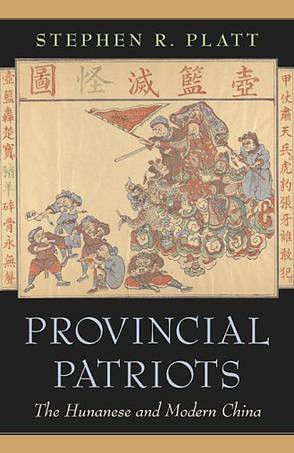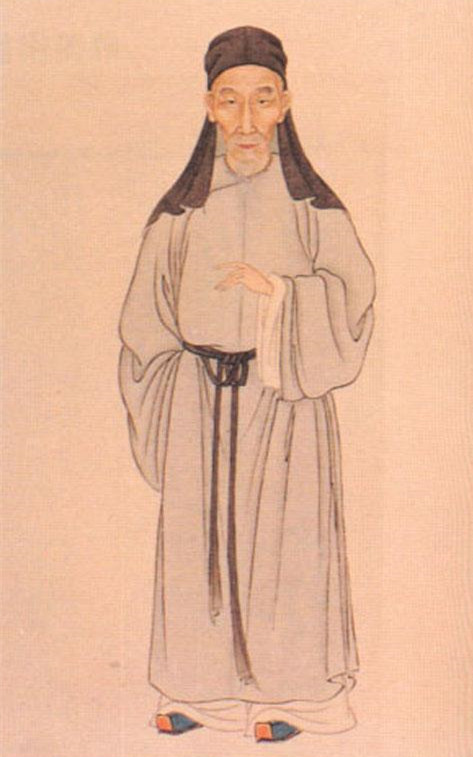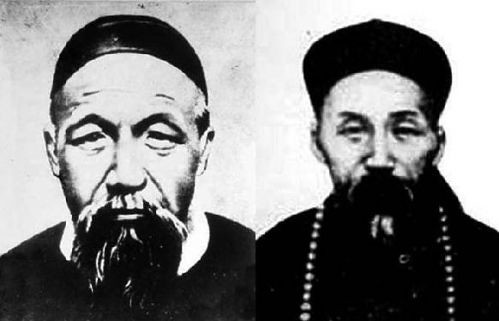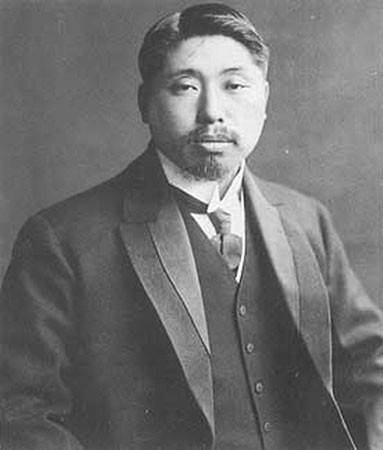Recently, the United States historian, Pei Shifeng (Stephen r. Platt) of the Hunanese and modern China (Provincial Patriots:The Hunanese and Modern China) simplified Chinese edition published by the social sciences documentation publishing house.
Pei Shifeng was United States disciple of the famous historian Jonathan Spence, Chinese history at Yale University, currently taught at the University of Massachusetts Amherst. Last year, he of the heaven's fall (Autumn in the Heavenly Kingdom:China, the West, and the Epic Story of the Taiping Civil War) translation published by the social sciences documentation publishing house, with its unique narrative perspective readers praise.
In Hunan and in modern China, Pei Shifeng back in 17th century hermit of Wang Fuzhi's prototype of the modern Hunan people in Hunan province, analysis of breaking the traditional mold how to influence future generations of revival movement in Hunan, and sort out the upper and lower aspect of three generations of the 80 years, Hunan scholars and activists of traditional culture.
Pei Shifeng, traditional narrative of modern Chinese history that all political and social reforms, nationalism, product of global cultural exchange is trading ports along the coast, thus the process of China's modernization is the capital city and trading port inspired interior. But, as in the introduction to the book, he said: "I will prove that this is not true, Hunan is not arrested by the traditional cultural center, is today a separate node in the development of modern China. We stopped looking at the trading port and capital city too long, temporary diversion of the line of sight, in the Central Hunan, new narrative of modern Chinese history presented to them. "
Why Wang Fu-Zhi's thought can become the prototype of the modern Hunan mental disposition? An important place in the modern history of China in Hunan province where is? Why is both radical and conservative forces in Hunan province in modern times? On these issues, surging Pei Shifeng received the news (www.thepaper.CN) interview.

Pei Shifeng
Surging News: Hunan and modern China, the book was adapted by doctoral dissertation, how did you think from the perspective of Hunan province, where a review of modern Chinese origin from?
Pei Shifeng: I went to Hunan province in China for the first time. After graduating from University, I, as a high school English teacher, lived for two years in Changsha. Changsha is the starting point of my trip, there are my friends and students.
Later, when I began to write his doctoral thesis, I was surprised to find, though many of the important figures in China's modern history from Hunan, but Western scholars the research of Hunan are very scarce. I've read about the origin of modern Chinese studies seem to focus on Shanghai and Beijing, Hunan is usually just as a "backward" examples of China's inland area, it needs to be enlightenment from coastal areas.
Hunan stories I feel deserve to be better explained to Western readers, so I decided to put the research of Hunan in the center of my paper, trying to find connections of Hunan's famous ties, and observed in the late Qing dynasty and early Republic of China, away from the Central Government and inland provinces of diplomatic experience.

English edition of the Hunanese and modern China
Surging News: you mentioned in the introduction to the book there is no study in Hunan province as the epitome of modern China, but to see it as a unique object, through that angle, showing China's modern history and we know what are the patterns of different?
Pei Shifeng: the main difference is that many Western historians focus on a single Chinese provinces and wider the province regarded as "local" case study experience. This approach is to a close examination of an area, which summed up the characteristics of applied to other areas--that is, through the section as a whole. Of course, this is a very effective method, but may have missed some important things.
I work with these methods is slightly different, I tried to find out more about characteristics of Hunan history is different from other provinces. I want to focus on those people think they distinguish themselves from other provinces of Hunan characteristics. By focusing on Hunan local history, you'll find the study path is different from the familiar narrative. However, the two approaches are very important, they can show only part of the whole historical picture, so should be used in conjunction.
Surging News: as soon as you begin to rediscover the Hunan great thinkers of the late Ming and early Qing Wang Fuzhi, thinks his thinking and influence the image of modern Hunan people's actions, then where is the rationality of the subsequent ratification?
Pei Shifeng: famous Hunan scholar Wang Fuzhi was loyal to the Ming dynasty, he refused to surrender to the Qing dynasty, Bi Qi was born in the mountains, Hunan scholars became the benchmark. They saw Zhi's as Hunan loyalty and representative of the spirit of resistance.
More famous of is, 20th century of early revolutionaries (including like Zhang Binglin such of non-Hunan people) due to Wang Fu-Zhi's from 17th century up wrote of anti-full works and will its described for China of nationalism of parent; also has like Tan think, Wang Fu-Zhi's of thought very meet political reform, this means with reform movement has local origin and non-external imposed; Zeng Guo-fan's in repression Taiping Heavenly Kingdom movement zhihou, first reprint has Wang Fu-Zhi's of most works, and put he considered great of Hunan Confucianism home. Tseng Kuo-fan, of course did not support his anti-full discussion and review related content deletion.
But in General, when future generations of Hunan scholars in the history of trying to find ways to embody some kind of "Hunan" spirit of people, Wang Fu-Zhi's is one of the most important figures.

Wang Fuzhi (1619-1692), and agriculture, Jiang Zhai, the Pennsylvania Hall, huguang Hengyang hengzhou Mansion (now Hengyang, Hunan), Ming and Qing dynasties famous thinkers.
Surging News: China's modernization process inspired ports are considered to be the capital and inland in the past, and you provided a new Hunan-centered narrative of modern Chinese history, that thought reform and discussed in the internal production of Hunan province, affecting history, what are some examples?
Pei Shifeng: for example, in 1897, a year before that in the 1898 reform of the Qing dynasty, Hunan started a reform movement, there has been a modern school, the local newspaper and the local Association, which is leading in China. Changsha Liang Qichao was then a school teacher, and many of his students in the age of Republic of China will play an important role.
And in the early 20th century, led by Huang Xing Hua XING of Hunan local organizations will try to start from Hunan anti-revolution. After the failure of Huang Xing and Sun Yat-Sen established a more famous revolutionary Alliance. During the movement, Mao Zedong in Changsha, actively sought to promote a local Constitution (which has one and only one time in China), and Western historians have paid little attention to what's going on outside of Shanghai and Beijing.
It is important, when the landlocked Hunan's reform thought and from the coastal capital trends interact, Hunan people don't just follow, they led at the crucial moment of history.
Surging News: modern Hunan people covered in your book covers politics, education, military and other fields and sectors, including Zeng Guofan's brother, Guo Songtao, Tan sitong, yangdu, Huang Xing, Song Jiaoren, Mao Zedong and others, these elite thought and action is representative of the Hunan higher most of the general public?
Pei Shifeng: history of thought relies on the written materials-newspapers, magazines, journals, letters, documents or something, of course, those who write these materials are the educated elite. Therefore, this book is in any case impossible to describe all the Hunan people's thoughts or experiences, it is a book about people who try to influence more broadly from Hunan scholars, intellectuals and activists. Some scholars claim that speaking for farmers, but it is impossible for us to confirm.
In any case, ordinary Hunan always had collective action – such as farmers unite to put off foreign missionaries, and as secret societies in cooperation with student revolutionary uprising, or like 20,000 people in Changsha Street protests, there are things you can feel strongly that when ordinary people would not obey.
But again, understanding that most of what people really think is very difficult. As other scholars have shown that, for example, during the 1911 revolution, when radical students tried to overthrow the Qing dynasty when the Republic was founded, and some farmers that they work is looking forward to the retrocession of the Ming dynasty secret societies.

Zeng, Zeng guoquan brothers
Surging News: throughout the modern history of China, Hunan province did was very strong from the Sino-Japanese war after the defeat of Chen Baozhen's, who led the "Hunan new deal", to the 1920 "provincial autonomy" movement leader, what do you think of modern Hunan people's ideas and "nationalism" so strong is the root cause of what?
Pei Shifeng: "nationalism" is a flexible concept, it can be represented by very powerful nation States or by domestic (even across multiple States) manifested relatively unified group. A person can be loyal to multiple objects, such as patriotic Americans can also be deeply loyal to Texas, an Englishman can strongly identify with Scotland.
I explore in the book is in the late Qing dynasty and early Republic of China, how those young activists try to spread this idea in Hunan people, they think they are a special group in China, has a common history based on a common destiny. Because Hunan Army put down the Taiping Heavenly Kingdom movement, descendants of Hunan militants thought Hunan was China's most powerful military force, if someone could block foreign powers, it must have been from Hunan.
Similarly, since 1897 Crusade and Huang Xing and Tan's early efforts as well as other revolutionaries, they described as China's most progressive groups in Hunan province. When the Qing Empire when foreign powers carved up, when the Republic was beset by warlords and civil strife in the early years, Hunan people some people think should (and can) unite to protect their own. This was before the establishment of the Chinese Communist Party, Mao Zedong to participate in Hunan autonomous movement of the roots.

Huang Xing (1874-1916), formerly known as Zhen, renamed, grams, and Gao Tang Xiang Fu Shan County, Changsha, Hunan province (now Changsha Huang Liang Tang), pioneer and leader during the revolution.
Surging News: usually one view in modern Hunan province is characterized by extremes of radical and extremist conservative forces coexist, Hunan province, why do you think created this feature?
Pei Shifeng: indeed, for foreigners in the late 19th century, Hunan is famous as the exclusive province of China. But in 1897, it is modern and fusion of Chinese and Western thought a variety of learned origin. I noticed Zeng Guo-fan and all from the same province of Mao Zedong, Mao Zeng at a young age as his favorite people. It is these forces of conservatism and radicalism are intertwined, Hunan provinces that became so important in the year, especially in 1897, when radical students and conservative nobility when to find common interests and cooperation. But, perhaps too many conflicts, which are often very short-lived.
Finally, I would like to say that when I do the research, I am simply a graduate student is going to be 30, I found myself particularly in the way of those militants. Because they were more than 20 years old in the year of the young Chinese student, and I was the same age, but they live in an incredibly dangerous and confusing times. They are committed to establish a new order in China, and I can only sit in the library reading their works. This is shameful.
So far, Hunan students and activists of sacrificing still gives me a sense of frustration, even now I get older, in particular, has become a father. I found myself on the Conservatives more sympathetic than before. Hunan is the place where some people want to change it, but also people who want to maintain order and calm. When the Chinese entered the Central Party school
No comments:
Post a Comment